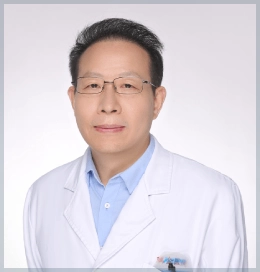
Wang Xiqiao
- Current Position: Associate Chief Physician, Department of Burn Surgery, Ruijin Hospital, Shanghai Jiao Tong University School of Medicine
- Academic Title: Ph.D., Master’s Supervisor
- Visiting Scholar: Queensland University of Technology, Australia
Research Focus:
- Hypertrophic scars and keloids
Academic Achievements:
- Principal Investigator of 3 National Natural Science Foundation projects
- Published 20 SCI-indexed papers
Academic Appointments:
- Member, Wound Repair Committee, Chinese Research Hospital Association
- Member, Burn Surgery Branch, Shanghai Medical Association
- Member, Branch of Burn Surgery Physicians, Chinese Medical Doctor Association
- Member, Shanghai Society of Traditional Chinese Medicine
Abstract submitted for the 5th International Keloid Symposium
Background: Keloid is a pathological scar that grows like a tumor. Previous studies revealed that chronic inflammation in keloid contributes to its formation, however, the mechanism is poorly understood.
Objective: Currently, numerous inflammatory diseases are correlated with microbiome dysbiosis, therefore, this study aims to investigate the presence of microbiome dysbiosis in keloids and its potential correlation with keloid formation.
Methods: A total of 35 keloid and 36 normal skin (NS) samples were collected, and the keloid severity was evaluated using Vancouver Scar Scale(VSS)score. The microbiota in the tissues was assessed by 16S rRNA sequencing, followed by an investigation into the correlation between microbiota and clinic indices . In addition,10 keloid and 10 NS samples were dissociated into single cells, and flow cytometry was used to analyze the proportion of T cells in keloids and NS tissues.
Results: The richness of the bacteria community in keloid was significantly reduced than that in NS. Additionally, the microbiota composition in keloid was different from that in NS. At the phylum level, Firmicutes was significantly higher in keloid than in NS, whileRhodococcus was the dominant species in keloid at the genus level. Acinetobacter, was also found to be positively correlated with keloid formation. Furthermore, Rhodococcus demonstrated a higher predictive value for keloid severity than Acinetobacter.. Interestingly, the bacterial composition varies during keloid progression. Compared to keloids<10 years, the proportion of genus Rhodococcus reduced significantly in keloids ≥10 years, while the proportion of genus Cutibacterium significantly increased compared to keloids<10 years. The proportion of CD4+ and CD8+T cells in keloid scar tissues was also significantly decreased compared with NS.
Conclusion: Microbiome dysbiosis occurring in keloids was dominated by Rhodococcus, which may be correlated with the reduction of CD4+ and CD8+T cells. Targeting microbiome dysbiosis may be a prospective approach future keloid management.
Keywords: Microbiome dysbiosis; Keloid; Inflammation; Vancouver Scar score; Rhodococcus


